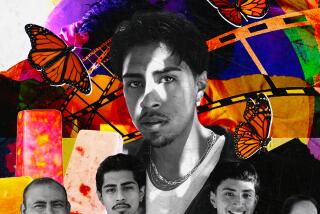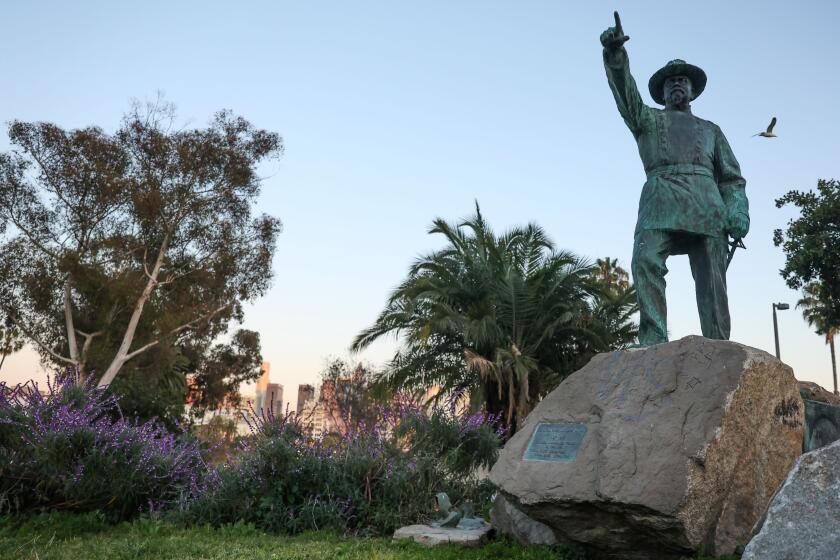Alex Alpharaoh put his own DACA story onstage, and the audience keeps on growing
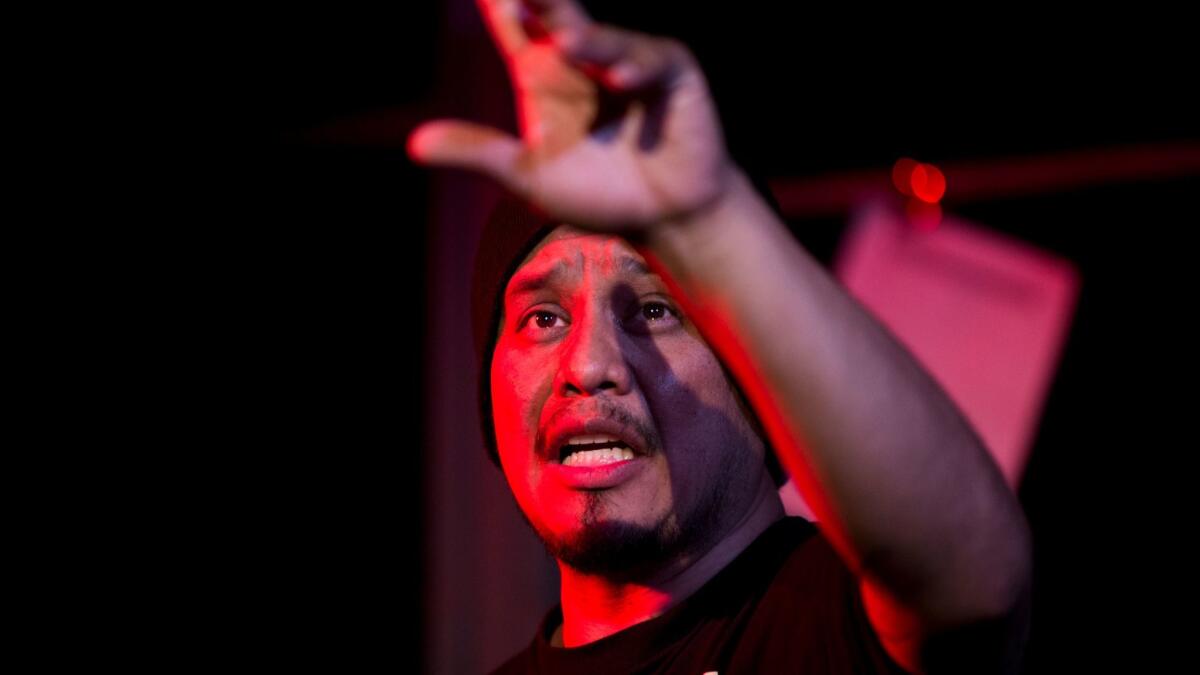
She had been walking for weeks across the Mexican desert, holding her 3-month-old boy to her chest. At 15 she had never left Guatemala before. When she ran out of water, she drank from puddles — if she could find them. Her breast milk dried up, and her baby grew weak with hunger. One day he began having a seizure.
Terrified, the mother screamed, “Ayudame! Ayudame!” She rocked her violently shaking infant as he stopped breathing. She watched frantically as another woman ran to her and breathed life back into her boy’s lungs. When the baby came to, the woman fed him from her own breast.
Soon after that, the mother crossed the border. Her baby was put to bed in Mickey Mouse pajamas. Someone handed her a Big Mac and said, “Welcome to America.”
That baby boy is now the 34-year-old actor and spoken-word performer Alex Alpharaoh, who tells his mother’s tale as part of the one-man show “Wet: A DACAmented Journey,” which recently wrapped a six-week run at Ensemble Studio Theatre/Los Angeles in Atwater Village.
If it weren’t for the tense lead-up to the Sept. 5 news that President Trump intended to phase out former President Obama’s Deferred Action for Childhood Arrivals program, “Wet” might have closed quietly. But the threat of deportation for more than 800,000 young people, the DACA Dreamers brought into the country illegally as children, drew immediate attention to stories like Alpharaoh’s. Word of his harrowing play has spread thanks partly to the attendance of people who don’t usually show up at local 50-seat theaters: Rep. Adam Schiff (D-Burbank), the district director for Rep. Judy Chu (D-Monterey Park) and representatives from the American Civil Liberties Union and Human Rights Watch.
Alpharaoh’s journey, told in relentless and clear-eyed detail, attempted to bring humanity to a subject that many people see only as a headline. It turned a polarizing policy debate into a discussion about people, and it asked questions about our “American” identity — what that means, and who should be allowed to claim it.
Based on the emphatic response to the play, EST/LA co-artistic director Liz Ross has decided to bring it back. It will run every Saturday and Monday in October, and in November it will be part of the Encuentro de las Americas Festival in downtown Los Angeles. Plans are also in motion to tour it around Los Angeles Unified School District.
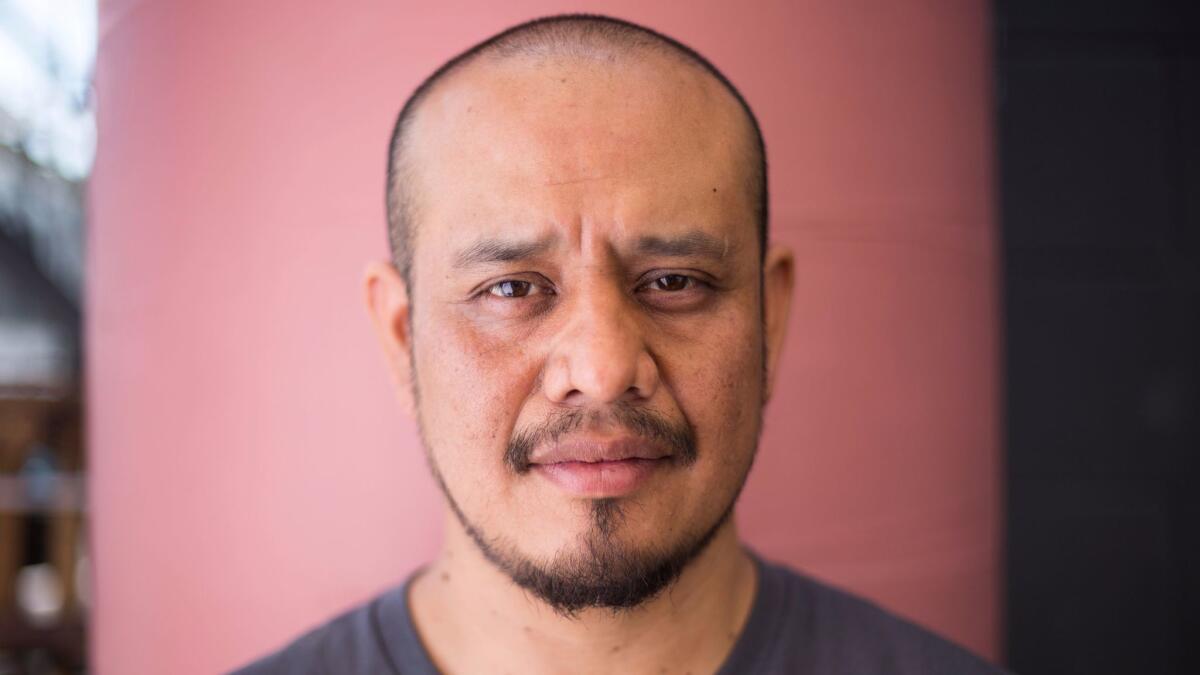
We’re not here to steal jobs, take identities and become burdens on the economy.
— Alex Alpharaoh
“I don’t consider myself an activist; I have too much respect for activists,” Alpharaoh says, sitting in his tiny dressing room backstage before the show, his dark eyes lighting up whenever he tells a joke, his head shaved, a cursive tattoo of “Los Angeles” on his left forearm. He talks quickly, with intensity and purpose. “I’m an artist and I’m sharing my testimony because this is what I do. If activism comes from that — if it activates someone to mobilize themselves and to work toward creating change and sparking awareness — that’s what I’m hoping for.”
For a moment in early April, it was unclear if Alpharaoh would be able to perform safely. During points in the president campaign, Donald Trump had vowed to end DACA; after the election, Alpharaoh was desperate to renew his work permits quickly.
It was touch-and-go, Ross says, and the theater was concerned that putting on the show might compromise Alpharaoh. Once his papers came through — two nail-biting weeks before they were set to expire — “Wet” moved full-speed ahead.
“When we knew he wasn’t at risk, we wanted to let him tell his story — to tell people what was coming while he was still legal,” Ross says on the day the play is closing. “Whatever was going to happen, his time was always going to be compromised because of bureaucracy.”
Over 90 minutes, Alpharaoh chronicles this bureaucracy in all of its maddening, maze-like detail: the dozens of hoops he had to jump through to qualify for DACA in 2012 (“You can’t just walk up and say, ‘I’ll take my DACA now, please,’” Alpharaoh jokes), as well as the preparations he’s tried to make since then, in the event DACA goes away.
This last part provides the material for more than half of the play, as Alpharaoh travels to Guatemala on what is called an “advanced parole.” Because his entry into the country wasn’t documented, he needs to establish an official point of entry before he can formally apply for citizenship. It is a perilous journey because he isn’t guaranteed re-entry, and he is terrified he won’t be able to return to his 15-year-old daughter.
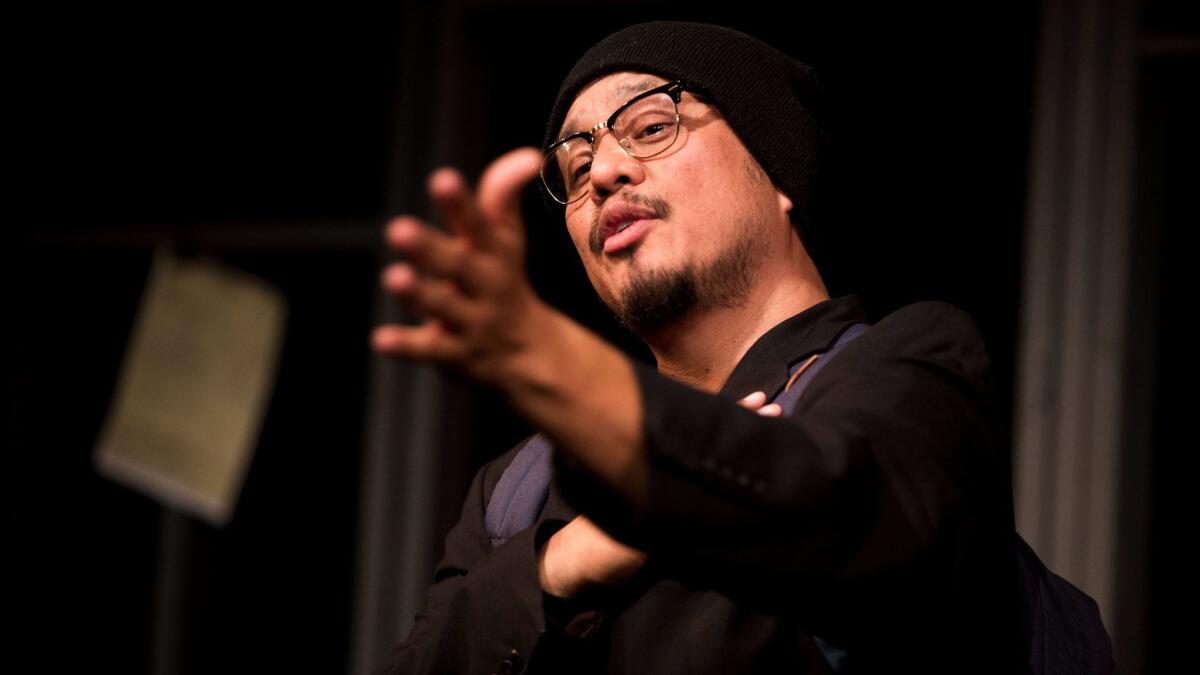
Alpharaoh is used to living with uncertainty. Growing up in Echo Park and South L.A., he was a creative, sensitive boy who had to act tough to avoid being bullied, beaten or worse. He often skipped school, attending only his drama classes. He moved a lot.
For 10 years, fearing reprisal at school, he didn’t speak Spanish at all. His mother was filled with shame about their situation.
“You can’t tell anybody about us, because if someone has a grudge against you, all they gotta do is call immigration, and they’ll come and take you away,” she told him.
Domestic violence contributed to a tumultuous home life that tore the family apart. Alpharaoh’s mother left when he was 8 and didn’t return for a long time. She learned English and got two college degrees, one in computer science and one in criminal justice. His father, who was studying to become a public defender when he came to America, made his living as a car painter. When he first sent for his young wife and child in Guatemala, he did so with money he saved subsisting on one egg and a slice of bread a day.
Despite all of this, or perhaps because of it, Alpharaoh was vigilant about protecting his secret identity, going so far as to get vocal coaching to eliminate all traces of an accent. Nobody suspected he was here illegally, he says.
Trump’s election made the cloud of racism hanging over the country that much thicker, Alpharaoh says. He never utters the president’s name in “Wet.” He refers to him only as “the 45th,” but the performer’s message is clear: This administration is threatening the lives of immigrants — people who might live next door to you, attend school with you, work with you as a store clerk, a hairdresser, a filmmaker.
Advocates for stricter limits on immigration argue that it’s simply not sustainable for everyone who wants to live in this country to be granted entry. But Alpharaoh’s story makes a special case for DACA participants, whose moves here were not of their choosing and who often have overcome enormous obstacles to build lives in America, as an American.
“We’re not here to steal jobs, take identities and become burdens on the economy,” Alpharaoh says. “We’re here to do exactly what every other group of immigrants has done in all the generations since the founding of this country in 1776, which is to find a better life for ourselves and our offspring.”
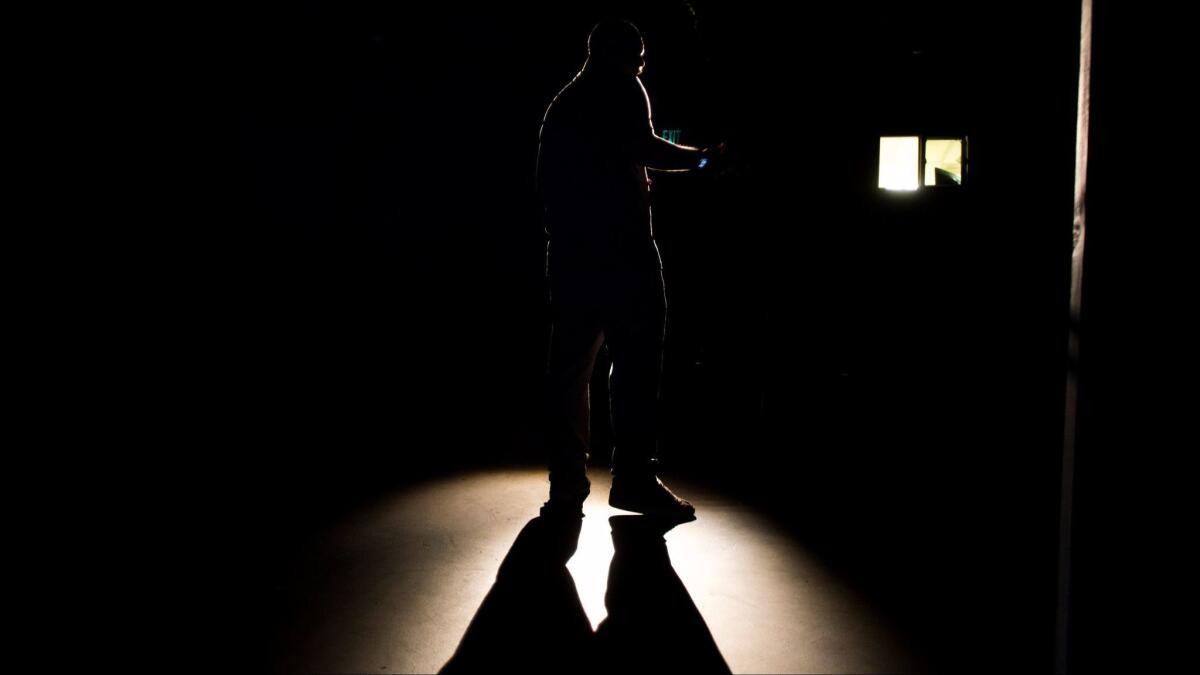
Beyond his work in L.A.’s theater and spoken-word community, Alpharaoh is a social worker. His daughter, whom he calls a “proud Latina and Angeleno,” has her sights set on attending the Juilliard School in New York.
“She’s not asking me, she’s telling me that she’s gonna go there,” says Alpharaoh, proudly. “My father’s life and death was not in vain. My mother’s tears, shame and embarrassment were not in vain, because I am living my purpose.”
Two hours later, as Alpharaoh utters the final words of his play, the sold-out audience leaps to its feet, applauding. A woman in the front row stands timidly, just beyond the spotlight. Tears stream down her cheeks, and she wipes at them with her palm. Her name is Maria Azucena Guray — Alpharaoh’s younger sister.
Alpharaoh catches her eye and nods solemnly. He takes his hands, presses them to his mouth and blows her a kiss. She puts her hands over her heart and smiles.
DACA AND ART:
Art shows that speak to DACA anxiety
An art moment rises: Why two works have acquired new significance
How artist Camilo Ontiveros acquired the belongings of a DACA deportee
More to Read
The biggest entertainment stories
Get our big stories about Hollywood, film, television, music, arts, culture and more right in your inbox as soon as they publish.
You may occasionally receive promotional content from the Los Angeles Times.

